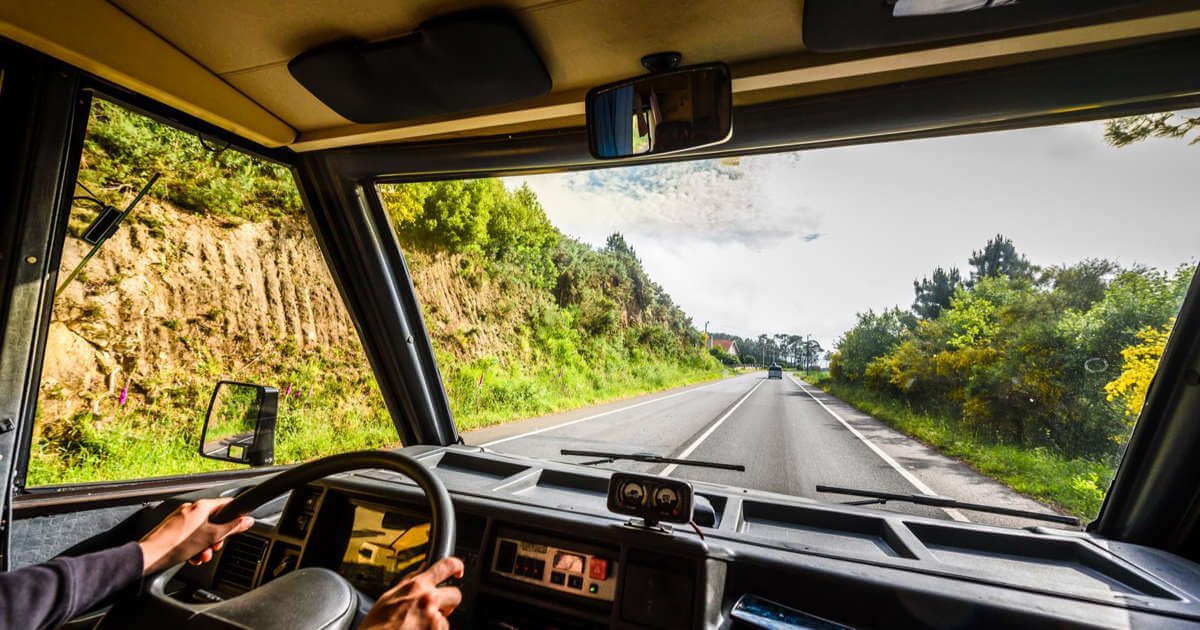Are you planning on taking your first RV trip? Congratulations! RVing is a fun and exciting way to explore new places and make new memories with friends and family. However, it can also be intimidating for first-time RVers, especially if you’re not sure what to expect. In addition, it can be frustrating when you are trying to enjoy your vacation and you end up making a mistake that costs you time, money, or peace of mind.
In this blog, we’ll cover common mistakes that many first-time RVers make, such as forgetting to check the weather forecast, failing to plan their route, and not packing enough supplies. We’ll also provide helpful tips and advice on avoiding these mistakes and ensuring that your RV trip goes smoothly.
So whether you’re a seasoned traveler or a complete novice, this blog has something for everyone. So sit back, relax, and let’s dive into the top 10 beginner RV mistakes and how to avoid them!
Common RV Mistakes and How To Avoid Them
1. Choosing the Right RV for Your Needs

There are many kinds of RVs, so you will have to figure out precisely what you’re looking for. For example, you might be interested in an adventure travel trailer, a fifth wheel, or even a motor home. There’s no doubt that all of these vehicles are great. But each one has its advantages and disadvantages.
For instance, an adventure travel trailer may be perfect for someone who wants to explore the country while traveling with their family. On the other hand, a fifth wheel could be the ideal option for someone who doesn’t like to drive long distances but still wants to enjoy the outdoors.
In addition, you’ll also need to decide how much money you can spend on an RV. The more expensive it is, the better quality it will likely be. However, some cheaper models out there are just as good as the pricier ones. If you research carefully, you shouldn’t have any problems finding the perfect RV for you.
2. Not Planning Ahead

This is one of the most common mistakes made by first-time RVers. You should always plan ahead before your trip, including where you will stop for the night, what routes you will take, and what amenities you will need along the way. Then, when you are in the planning stage, make sure that any necessary permits and reservations are made.
Make a list of things you might need before you leave, and then shop for the best deals. You will be able to save money by doing this. Also, be sure to research your destination before you leave – there’s nothing worse than getting lost in an unfamiliar area. This will help prevent any surprises or mishaps on the road.
3. Avoid Running Out of Clothes and Supplies
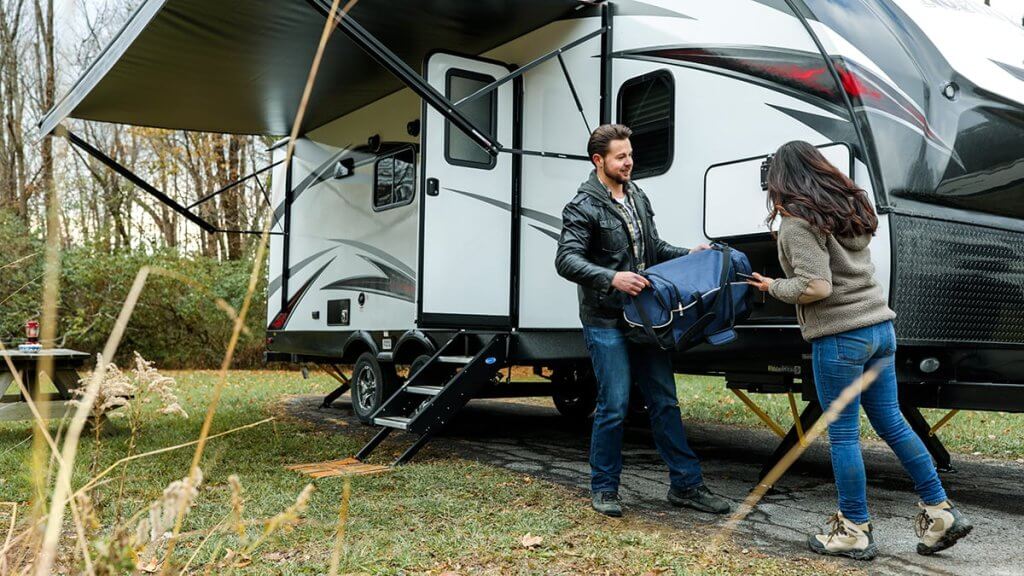
Another mistake many new RVers make is not packing enough clothing and supplies for their trip. This can lead to various problems, such as running out of clean clothes, not having enough towels or blankets, and being unable to cook or clean properly. To avoid these issues, it’s essential to take the time to plan out what you need and make sure that you have enough of everything before you hit the road. One way to avoid this mistake is to create a packing list and check it off as you go. This will help you remember everything you need and ensure you don’t forget anything important.
Ensure to include items like clothes, towels, blankets
You never know what might happen on the road, and it’s better to be safe than sorry. For example, if you get caught in a sudden rainstorm, you’ll be glad that you packed an extra pair of shoes and a raincoat. In addition, you never know when you might need something, so it is best to pack for all possible scenarios.
4. Improve You Driving Techniques for Safe and Smooth Travels
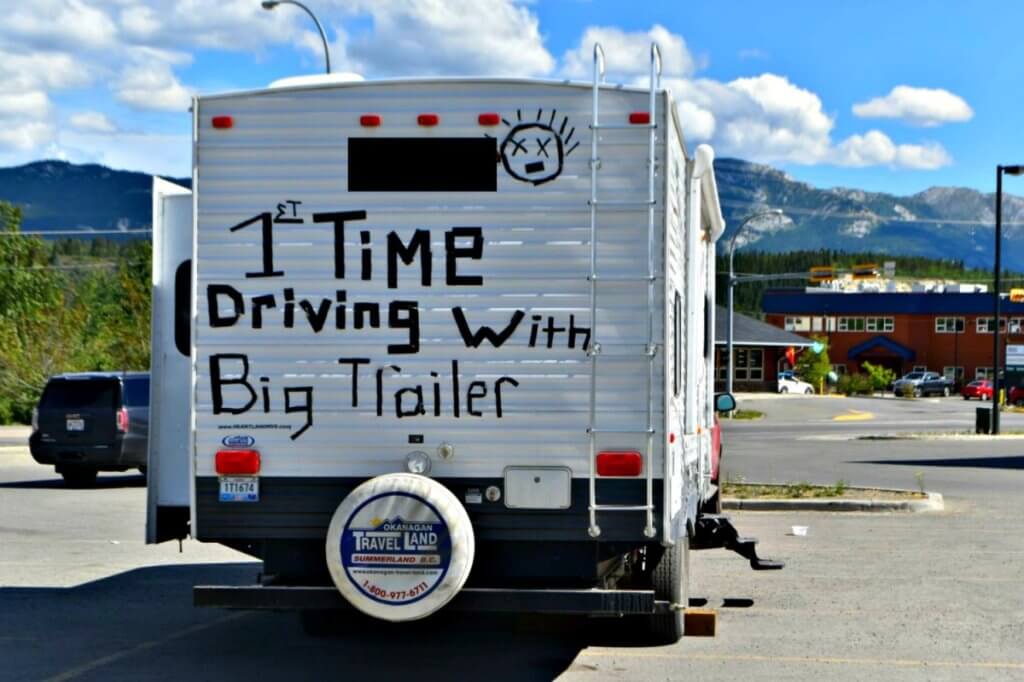
RVs are typically much larger and heavier than the average car, and they can be difficult to maneuver, especially in tight spaces or in adverse weather conditions. Many new RVers may be used to driving smaller vehicles, and they may not be prepared for the challenges of driving an RV. Poor driving skills can lead to a variety of problems for RVers, including accidents, damage to the RV, and injuries to themselves or others. Therefore, it’s essential for new RVers to practice driving their RV in a safe and controlled environment, such as an empty parking lot, before heading out on the road.
You should also take the time to learn your RV’s specific handling characteristics and understand the importance of proper braking, steering, and acceleration techniques. Poor driving skills can be a major problem for new RVers, and it’s important for them to learn and practice the proper techniques to avoid accidents and ensure a safe and enjoyable experience on the road.
5. Not Checking Your RV Insurance Policy

RV insurance is a crucial protection for anyone who owns or operates an RV, as it provides coverage for a variety of potential risks and liabilities. However, many new RVers may not fully understand their insurance policy or be unaware of the specific coverage and exclusions that apply to their RV.
If you don’t check your RV insurance policy, this leads to a number of problems, including:
- First, not having adequate coverage for your RV and its contents.
- Not having coverage for specific risks or liabilities, such as accidents, injuries, or property damage.
- Third, not have coverage for certain types of RVs, such as older or custom-built models.
- Finally, not having coverage for certain activities or uses, such as off-road driving or commercial use.
To avoid these mistakes, it’s important for new RVers to review their insurance policy carefully and to make sure they understand the coverage and exclusions that apply to their RV. You should also be aware of the specific risks and liabilities associated with RVing and should consider purchasing additional coverage or endorsements to protect yourself and your property.
6. Going Without a Spare Tire
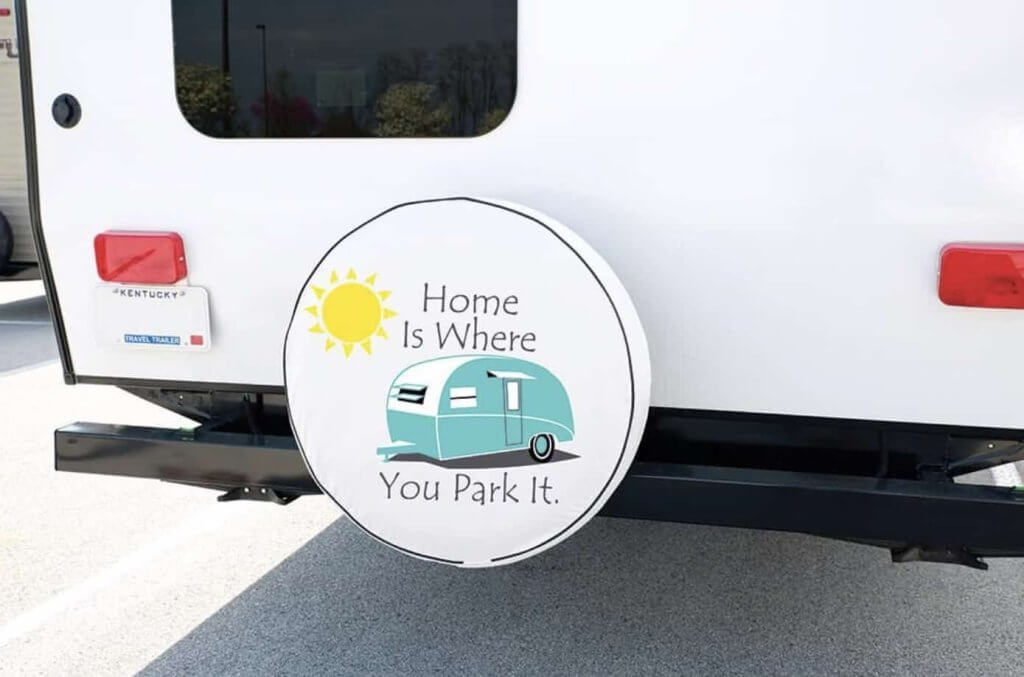
A spare tire is an essential piece of equipment for any RV, as it provides a backup in case of a flat or other tire failures on the road.
Going without a spare tire can lead to a number of problems, such as:
- Being stranded on the side of the road in case of a tire failure.
- Pay for costly roadside assistance or towing services to get the RV back on the road.
- Risking damage to the RV and its contents if the tire failure occurs at high speeds or in adverse conditions.
To avoid these mistakes, it’s important for new RVers to ensure they have a spare tire that is properly inflated and in good condition and knows how to use it in case of a tire failure. If you have a newer model RV, it’s a good idea to invest in a spare tire carrier for the back of your vehicle. This will allow you to mount your spare tire quickly and easily. You should also be familiar with your RV’s specific tire requirements and maintenance needs and should regularly check and replace their tires as needed.
7. Spending Too Much Money on Fuel

RVing can be a great way to save money on travel expenses, but if not managed properly, the fuel cost can quickly add up. In addition, many new RVers may not be familiar with the fuel efficiency of their RV or may not know how to maximize their fuel economy on the road.
Spending too much money on fuel can exceed your budget, and you may not be able to afford other necessary expenses, such as food, camping fees, or maintenance costs. You might also have to cut short your trip or skip certain destinations due to a lack of funds.
To avoid these mistakes, it’s important for new RVers to familiarize themselves with the fuel efficiency of their RV and to understand the factors that affect their fuel economy. They should also be aware of the fuel cost at their destination and along their route and should plan their trip accordingly. Additionally, they should practice fuel-efficient driving techniques, such as maintaining a steady speed, avoiding heavy acceleration and braking, and avoiding idling or excessive engine revving.
8. Travelling Too Far and Too Fast
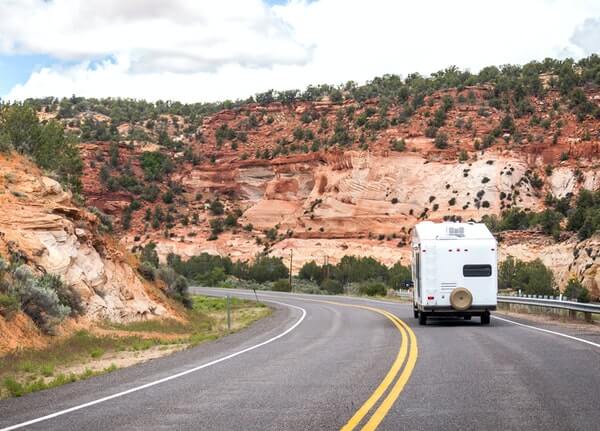
With the freedom and flexibility that an RV provides, it can be tempting for new RVers to hit the road and see as much as possible in a short amount of time. However, this approach can lead to a number of problems, including fatigue, stress, and a lack of enjoyment.
Traveling too far and fast can lead to burnout and exhaustion, as RVers try cramming too much into a single trip. This can cause them to miss out on the beauty and wonder of the places they visit and can even lead to accidents or other dangerous situations. Therefore, it’s important for new RVers to pace themselves and allow plenty of time to enjoy the sights, sounds, and experiences of the places they visit.
9. Not Getting Enough Rest
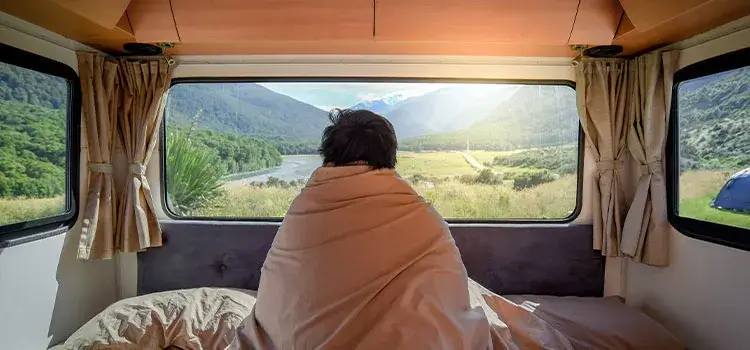
One mistake that many new RVers make is neglecting their need for rest and relaxation. With the excitement and freedom of the open road, it can be tempting for new RVers to push themselves to the limit, staying up late and getting up early to see and do as much as possible. However, this approach can quickly lead to burnout and exhaustion, impairing judgment and decision-making abilities and potentially causing accidents or other dangerous situations.
In order to avoid this mistake, it’s important for new RVers to prioritize their rest and make sure they get enough sleep each night. This will help them to stay alert and focused on the road and will also allow them to enjoy their travels to the fullest.
10. Not Following Camp Etiquette
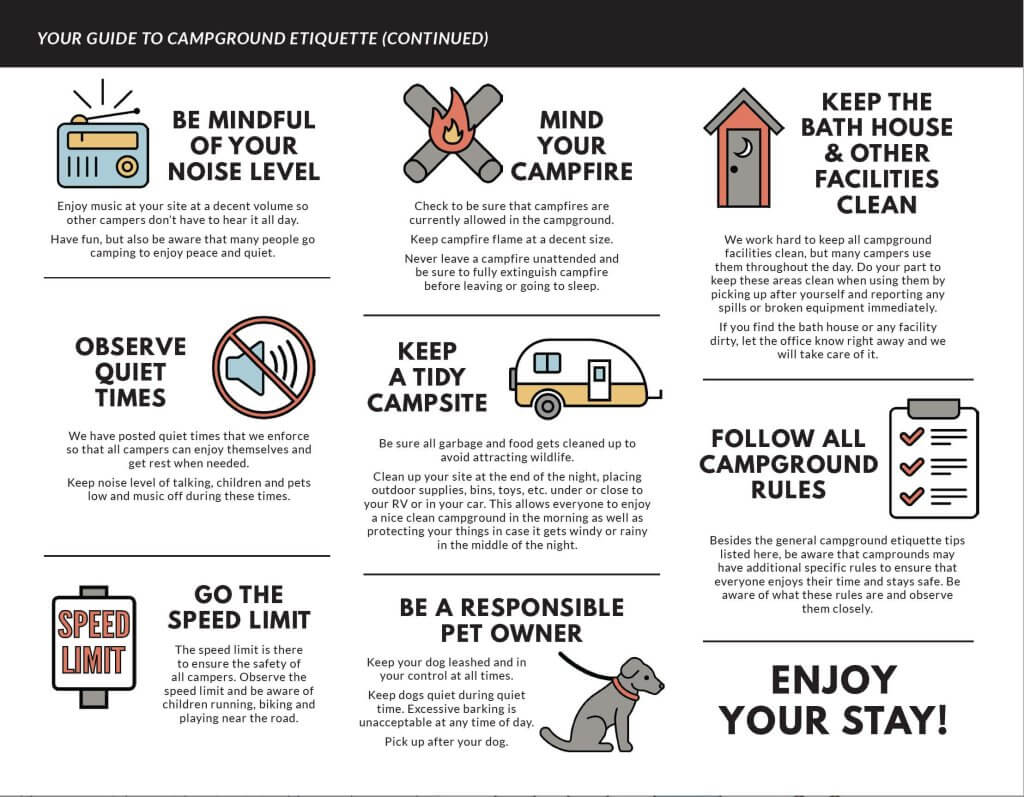
When RVing, it’s important to be considerate of others and to follow the rules and guidelines set by the campground or RV park. Failure to do so can lead to conflict and unpleasant experiences for both the RVers and their fellow campers.
Some common examples of not following camp etiquette include:
- Making excessive noise, such as playing loud music or yelling, at inappropriate times.
- Disrespecting the property of others, such as by parking in a designated spot without permission or by leaving trash or litter behind.
- Failing to properly dispose of wastewater or other waste materials, such as by dumping gray or black water on the ground or in public facilities.
- Not following the campground’s rules and regulations, such as by failing to register or pay fees or by bringing pets or other prohibited items onto the property.
To avoid these mistakes, it’s important for new RVers to familiarize themselves with the campground’s rules and regulations and to respect the rights and property of their fellow campers. You should also be aware of local laws and regulations regarding RV camping to ensure a safe and enjoyable experience for everyone.
Conclusion
In conclusion, camping in an RV can be a fun and exciting experience, but it can also be overwhelming for beginners. However, by avoiding the common mistakes outlined in this article, you can ensure that your trip goes smoothly and that you have a great time.
Remember to plan ahead, pack wisely, and be prepared for unexpected situations. So, take the time to educate yourself and avoid these common pitfalls, and you’ll be well on your way to having a smooth and successful camping trip in your RV. Happy camping!

